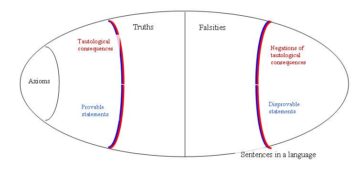Timothy Williamson at Aeon Magazine:
 Since logic is the ultimate go-to discipline for determining whether deductions are valid, one might expect basic logical principles to be indubitable or self-evident – so philosophers used to think. But in the past century, every principle of standard logic was rejected by some logician or other. The challenges were made on all sorts of grounds: paradoxes, infinity, vagueness, quantum mechanics, change, the open future, the obliterated past – you name it. Many alternative systems of logic were proposed. Contrary to prediction, alternative logicians are not crazy to the point of unintelligibility, but far more rational than the average conspiracy theorist; one can have rewarding arguments with them about the pros and cons of their alternative systems. There are genuine disagreements in logic, just as there are in every other science. That does not make logic useless, any more than it makes other sciences useless. It just makes the picture more complicated, which is what tends to happen when one looks closely at any bit of science. In practice, logicians agree about enough for massive progress to be made. Most alternative logicians insist that classical logic works well enough in ordinary cases. (In my view, all the objections to classical logic are unsound, but that is for another day.)
Since logic is the ultimate go-to discipline for determining whether deductions are valid, one might expect basic logical principles to be indubitable or self-evident – so philosophers used to think. But in the past century, every principle of standard logic was rejected by some logician or other. The challenges were made on all sorts of grounds: paradoxes, infinity, vagueness, quantum mechanics, change, the open future, the obliterated past – you name it. Many alternative systems of logic were proposed. Contrary to prediction, alternative logicians are not crazy to the point of unintelligibility, but far more rational than the average conspiracy theorist; one can have rewarding arguments with them about the pros and cons of their alternative systems. There are genuine disagreements in logic, just as there are in every other science. That does not make logic useless, any more than it makes other sciences useless. It just makes the picture more complicated, which is what tends to happen when one looks closely at any bit of science. In practice, logicians agree about enough for massive progress to be made. Most alternative logicians insist that classical logic works well enough in ordinary cases. (In my view, all the objections to classical logic are unsound, but that is for another day.)
more here.
